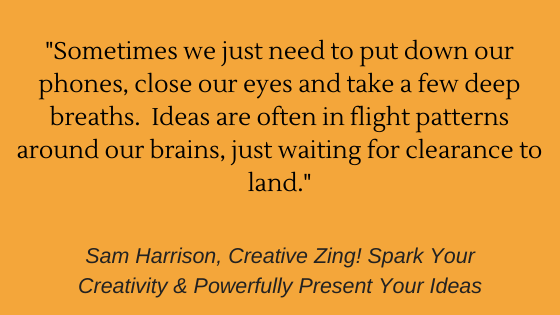In our previous blog, we delved into the change of mindset that is needed to enable us to switch from a reactive mindset to a proactive one. In this blog, we’ll be discovering how those with an AD/HD brain can deal with heightened reaction.
Many people with AD/HD are really sensitive and emotional. And, as amazing of a gift as this is, it can get in the way. The AD/HD brain has a different working memory structure. This can allow an emotion to become too strong, flooding the brain with intense emotion. This part of the brain distinguishes between dangerous threats and more minor problems, so an AD/HD brain can find it difficult to deal “rationally and realistically” with events. This can feel like a real burden at times; you may experience strong emotions to something that others seem to take in their stride. It might feel like you’re out of control and you should “just be able to control it like everyone else.”
The great news is…learning about and accepting what’s going on can really help.
- It’s your brain, not you: Many people with AD/HD have DESR also. DESR is Deficient Emotional Self-Regulation. This is thought to be caused by a fold of tissue in the middle of the brain called the Cingulate Gyrus. It appears to play a big role in how reactive a person is, and, stimulant medications can help this tissue act more in accordance with a non-AD/HD brain. By understanding this, rather than thinking you are simply being over-emotional, you start to take back control of the situation. This can help you avoid unnecessary self-criticism.
- Society loves immediate: We live in an “immediate” society; everything happens at such speed that we kind of accept immediacy as the norm. We all love to appear efficient and “on the ball”, (who doesn’t love the feelings that come from a “thanks for responding so quickly” reply to your email?) and we all love the appreciation that stems from that immediacy. So much so, that we likely respond quickly again …to not only THIS person but to more…who does not love “getting answers and praise?” Yet, this is a double-edged sword. The dopamine fix we get with this also depletes us by the end of the day and does not allow for our longer term (not immediate) yet important tasks/projects to be completed – resulting in a longer-term sense of failure. Instead of going for the “instant fix” resulting from an immediate reply, it’s far better to adopt a measured approach; allowing time for you to formulate the correct response and also giving yourself a break. The recipient won’t think any less of you, but the extra time will allow you to pace yourself and banish that sense of disappointment and failure.
- Avoid the embarrassment: It’s embarrassing sometimes, to allow our mouth to precede our brains. However, with:
- The right medications
- Practicing the pause (breathe)
- Accepting “progress not perfection” as a mantra
we can reduce reactions, get more (of the important things) done in less time, and feel much better about ourselves.
Although experiencing these traits can seem like a burden at times, by recognizing them and learning techniques to help you control them and maybe even turn them to your advantage!


